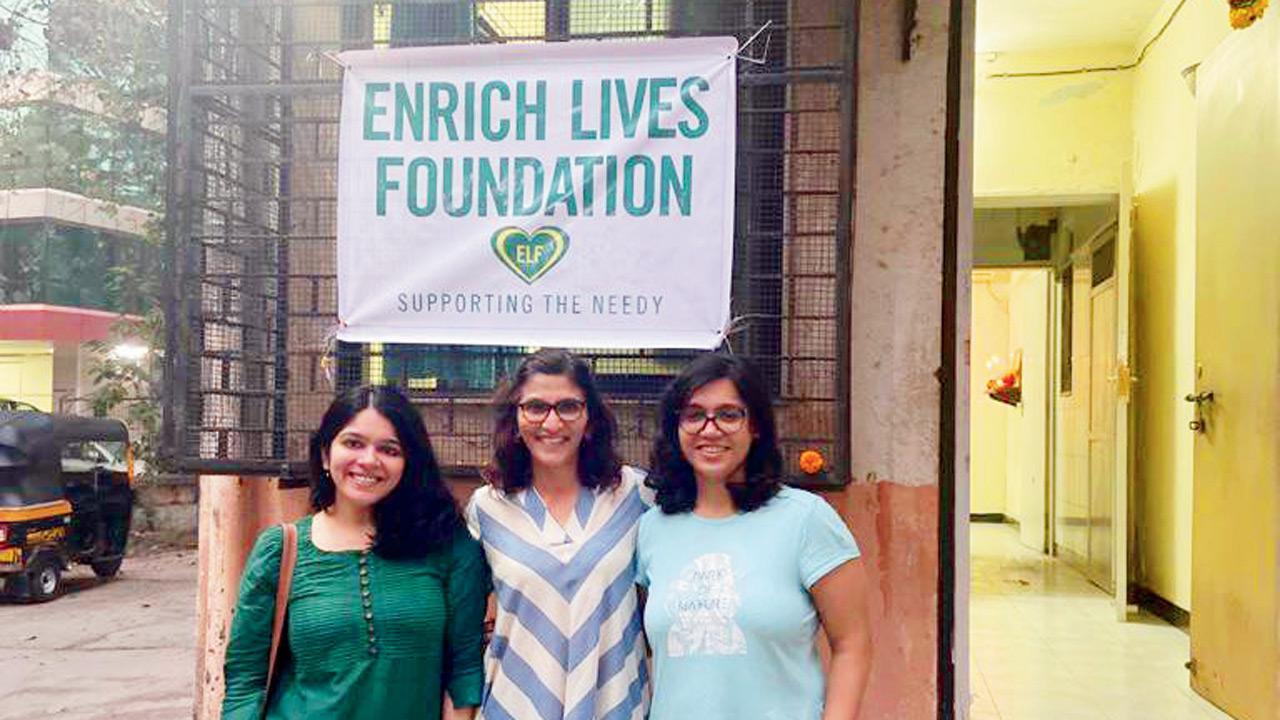With shots provided by Surana Group of Hospitals at a discounted rate, NGO Enrich Lives Foundation has inoculated 150 locals of Govandi slums

(From left) Samrudhi Chothani, Rashmi Balwani and Shievani Upadhyay
Inspired by door-to-door vaccination drives, three women from a city-based NGO, have initiated a campaign to inoculate slum dwellers in the 18-44 years age group. To begin with, they have already given the jab to 150 people from Govandi slums and plan to vaccinate another 1,200 people from the Shivaji Nagar slums this weekend. They have set a target of 13 slums in the city.
ADVERTISEMENT
CEO of Surana Group of Hospitals, Dr Prince Surana, who provided the vaccines at a discounted rate to the NGO, said, “The women running the NGO Enrich Lives Foundation approached us. We are happy to collaborate with them by providing vaccines and our services as well.” He added, “If we need to achieve herd immunity in Mumbai, everyone should get vaccinated. The earlier, the better.”
Through a Facebook post the NGO had said many of these people were extremely hesitant due to misinformation and inability to afford vaccinations at private hospitals. A special vaccination awareness drive was also held before starting off the campaign.
“With the help of another NGO Switch India, we conducted vaccination awareness drives to clear their misconceptions and doubts. So far, we have conducted the drive in seven slums,” said Rashmi Balwani, an entrepreneur and co-founder of Enrich Lives Foundation.
Balwani along with Shievani Upadhyay and Samrudhi Chothani have been working relentlessly through the pandemic to provide relief material to slum dwellers. She said in order to start the inoculation drive, they thought of requesting their donors to sponsor vaccines.
“Why wait for people to fall ill if we can prevent it by giving them vaccines. More than 70 per cent of the slum dwellers are in the 18-44 age group. They are daily wagers, plumbers, electricians and housemaids,” said Balwani. “Life is precious. If every privileged person can support one or more underprivileged life, our society will be a safer place for everyone irrespective of our backgrounds,” added Balwani.
Dr Anant Bhan, a global health and bioethics researcher, said, “For vaccination to succeed as a public health intervention, we need to enhance its coverage in all segments of society. Since vaccination rates are relatively low in low-income urban pockets and rural areas, we need to work with communities in these areas to enable more people to get vaccinated. This will include access to vaccination as well as engagement to respond to misconceptions and fears about the jabs.”
 Subscribe today by clicking the link and stay updated with the latest news!" Click here!
Subscribe today by clicking the link and stay updated with the latest news!" Click here!






